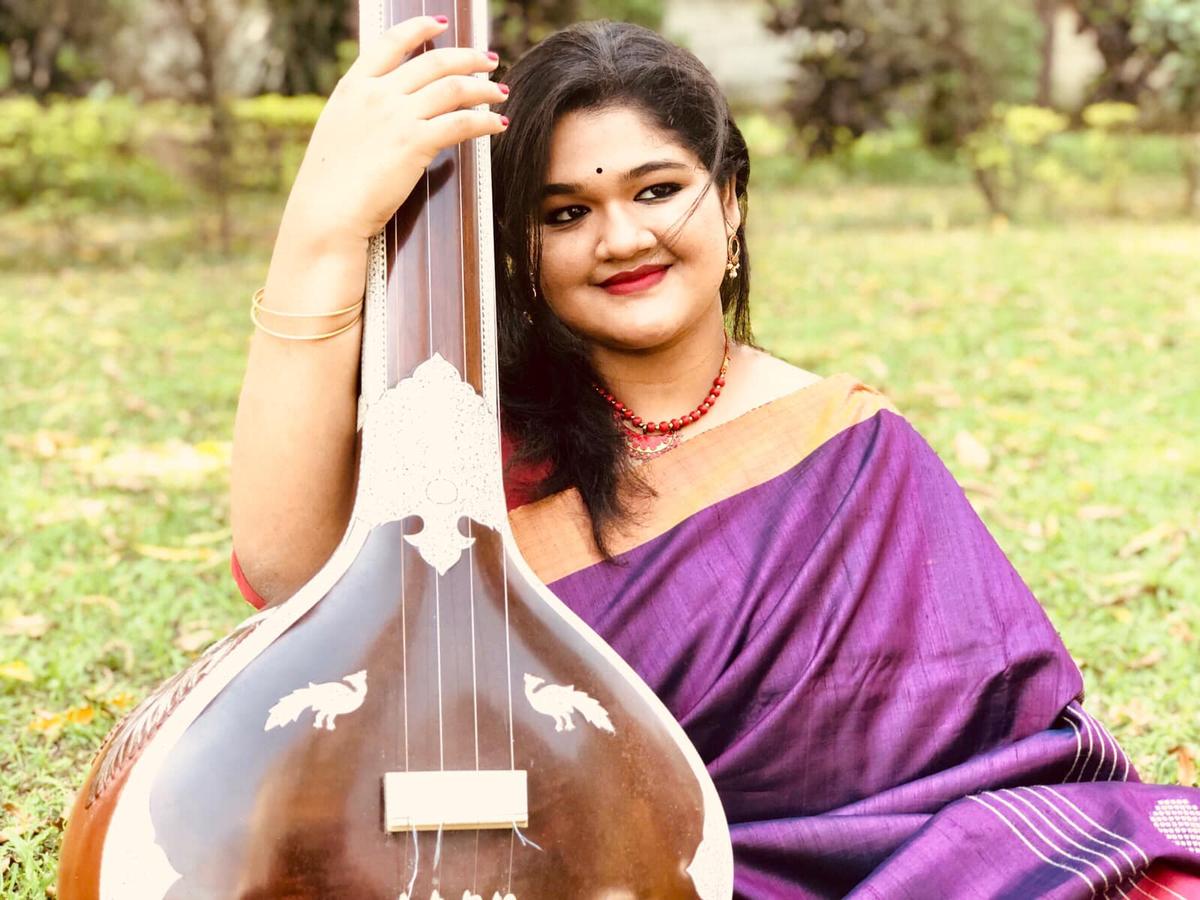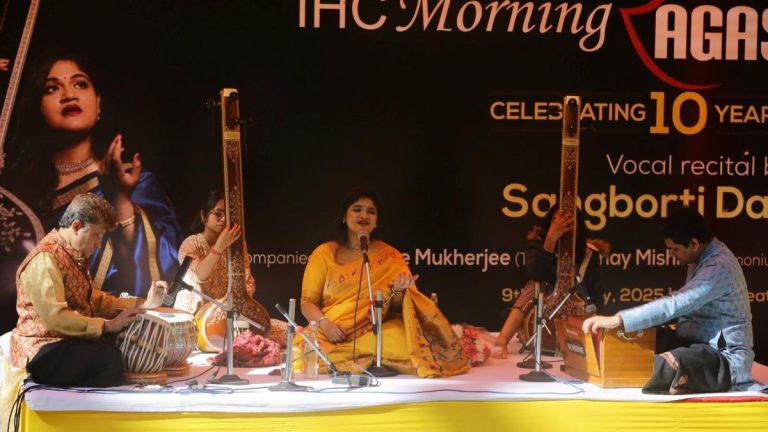
Sangborti Das at the 2025 edition of India Habitat Centre’s morning raga series.
| Photo Credit: Special Arrangement
Ten years ago, the India Habitat Centre in New Delhi tied up with ITC SRA Kolkata to host the Morning Raga series. The aim was to arrange classical music concerts in the open, in the morning. Over the years, renowned exponents such as Girija Devi, Amjad Ali Khan and Bombay Jayashri.
This year, to mark a decade of the Morning Raga series, Habitat Centre went back to the roots and the series featured only ITC gurus and scholars. Thus, Delhi-ites heard a new generation of excellent musicians — sarodist Abir Hossain, sitarist Ayan Sengupta, and vocalists Deborshee Bhattacharjee, and Alick Sengupta and Sangborti Das. It is interesting to note that a handful of gurus — Pt. Buddhadev Dasgupta, Pt. Ulhas Kashalkar and Pt. Ajoy Chakrabarty has produced these young and talented musicians.
The ambience was soothing — one could hear birdsong, green leaves fluttering overhead, the sun slowly moving in an arc over the seated audience, many of whom were young. The stage was decorated in the spring colours of yellow and orange, and the seating as always was in baithak style.
Among the line-up of artistes, Sangborti Das’s style was intriguing. After hearing her sing, one was keen to know more about her. Sangborti hails from a family of doctors. Though in her twenties, she performed like an experienced artiste. She trained at Sruti Nandan, the music school established by Pt Ajoy Chakrabarty. She currently teaches there over the weekend while continuing her training at ITC SRA.
Sangborti is blessed with a clear ringing voice, which steadily held the note; she was able to retain the audience’s attention in her first concert in Delhi. Her diction and enunciation of the lyrics were impeccable, and her stage presence pleasing. Wisely, she did not attempt what she was not confident about.

The highlight of her concert was raag Bahar
| Photo Credit:
Sprecial Arrangement
The singer began with the morning raag Bairagi Bhairav, in which she rendered two compositions, then sang Alhaiya Bilawal. The composition on Holi ‘Khelo re horiyan, Mohan sang’. Next, displaying the open-minded approach that this generation of musicians holds dear, she sang a composition she learnt at a workshop conducted by Pt. Ulhas Kashalkar of the Gwalior gharana. This willingness to absorb elements from other musical styles has brought about change in Hindustani vocal gayaki.
Next, sensitive to Nature, Sangborti moved to the raag of the season, Bahar. After ‘Sakal ban phool rahi sarson’, she sang two more songs on audience request. ‘Sakal ban phool’, a composition by Amir Khusrau, was part of the recent popular TV series Heeramandi.
Sangborti then switched to a traditional tarana in teen taal, taught at an ITC workshop by Ustad Mashkur Ali Khan of the Kirana gharana — Sangborti learnt it from her gurubhai Brajeshwar Mukherjee.
The concert concluded with ‘Kaleeyan sang karat rang raleeyan’. The audience was not in a mood to let her go, despite the strong sun beating down, so Sangborti ended with a Bhairavi thumri ‘Baaju band khul khul jaaye’. Vinay Mishra’s emotion-filled playing on the harmonium for this piece was commendable.
On the tabla was the seasoned Pt Ashok Mukherjee from Kolkata, whose on-stage rapport with the vocalist was clearly visible. One admired Sangborti’s gesture in appreciating her accompanists’ musical inputs.
Published – February 24, 2025 03:49 pm IST

